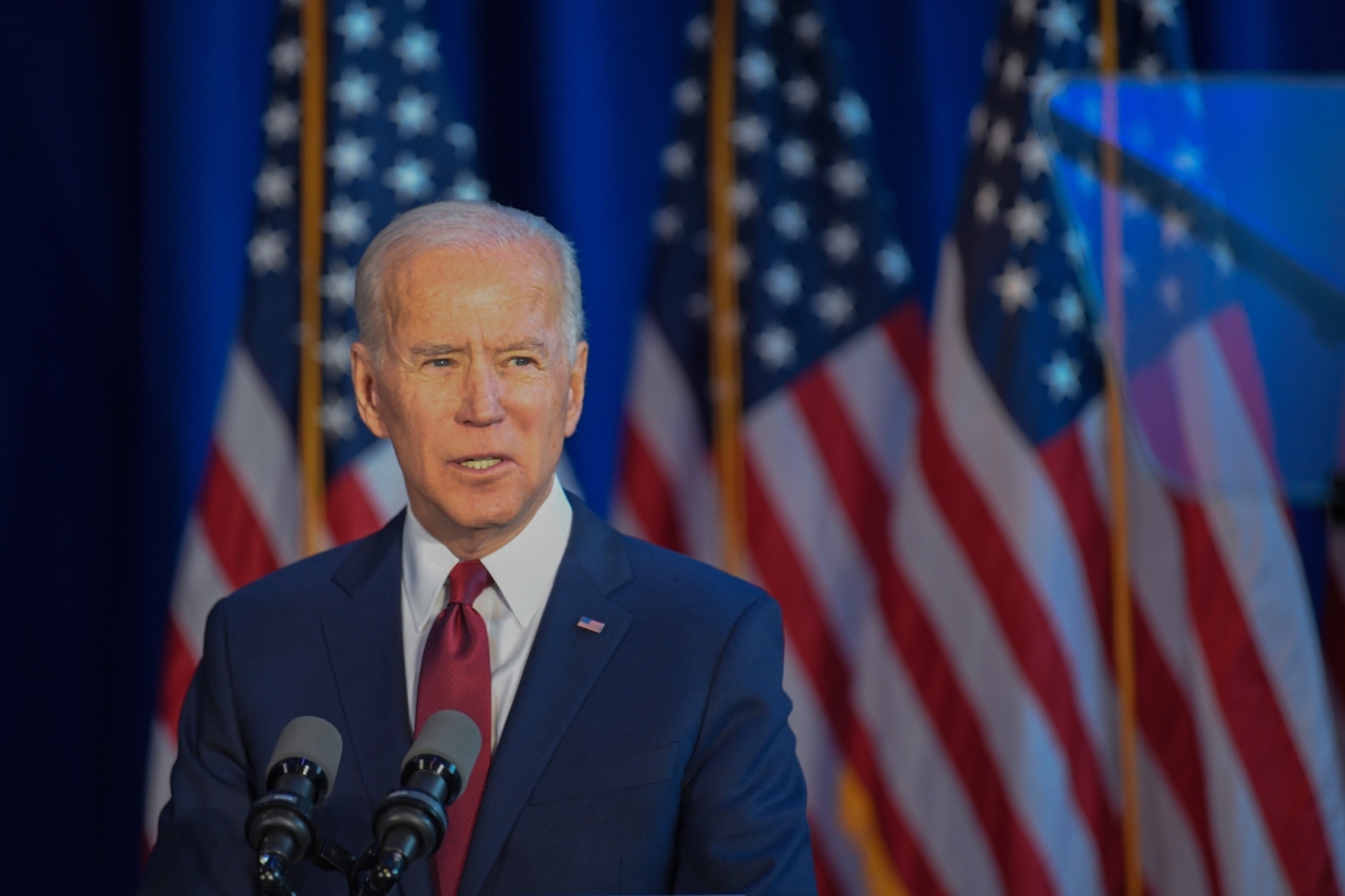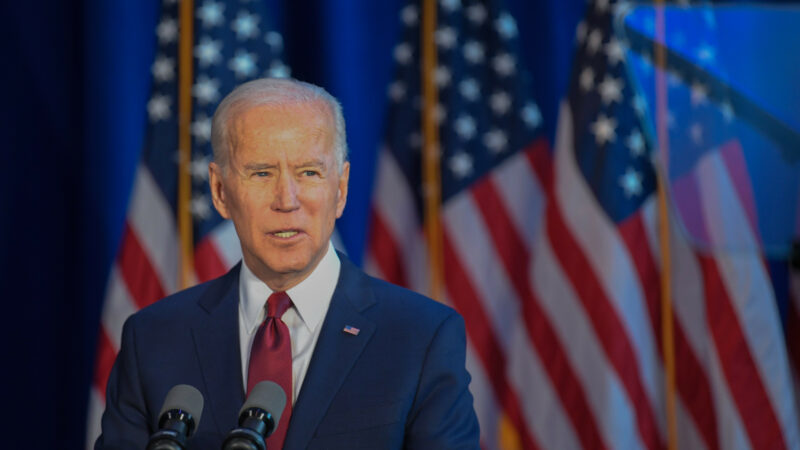Abstract: Various political forces that contribute to the instability in the Middle Eastern region at all levels exist, whether Israeli or Arab. The region prepared for U.S. President Joe Biden’s visit[1] from July 13 to 16, 2022. Certainly, questions have arisen regarding Biden’s busy agenda upon his arrival and his ability to achieve his most prominent goals, especially since the visit is his first presidential one. In addition to the objectives that were expected to occur in his agenda, such as supporting Israel and reassuring Saudi Arabia, and hidden ones that were not achieved due to the position of Arab leaders, such as the establishment of a Middle Eastern NATO and the repercussions of each of those goals on the region.
Problem statement: How can the objectives of Biden’s hidden and stated visit to the Middle East be understood and evaluated?
Bottom-line-up-front: With the outbreak of the Russian-Ukrainian war that is still ongoing, Joe Biden’s visit in mid-July came with an agenda that includes hidden and declared goals for the Middle East, which seem to have been an important priority for the US administration after it realized the importance of advancing its interests with the countries of the region.
So what?: With the failure to implement some of the hidden and stated goals on Biden’s agenda during his visit to the Middle East, his inability to impose American values in his dealings with the leaders of the region in general, and his preference for common interests and pragmatic approach, we can attribute it to the dynamic transformation that is already taking place in the region after the American withdrawal from Afghanistan, the outbreak of the Russian-Ukrainian war, as well as the increasing Chinese and Russian role in the region, as well as the flexible handling of Arab leaders with the transformations of the international order itself that is moving towards multipolarity.

Source: shutterstock.com/Ron Adar
Israeli Desires
Israel’s political leadership is well aware that President Biden’s upcoming visit bears internal political significance, just as important as the external and international aspects he highlighted in his Middle East agenda. In November 2022, the midterm elections for the U.S. Senate and House of Representatives will be held. Biden and the Democrats are not reassured by the repercussions of Trump’s legacy, with only 40% popularity[2]. That is not enough for him, especially given the continuous interactions of the Russian-Ukrainian war and the depressing economic situation globally and regionally. The history of U.S. elections indicates that the party representing the White House is losing seats in the midterm elections[3], a kind of referendum on the president’s performance in his first two years in office. Biden is therefore very interested in visiting Israel before the midterm elections to boost support for Democratic candidates. His visit will send a message to Israel and the Middle East that the United States has no intention of leaving the region and is committed to protecting its allies, whether the United States and the West sign a new nuclear agreement with Iran or not. In return, with Israeli support, there will be a commitment from Biden for Israeli demands and desires that will be formulated in the situation of the Palestinian issue, bilateral relations between Washington and Tel Aviv, the provision of qualitative military aid, the energy crisis and the future of the relationship with the possibility of normalization with Saudi Arabia[4] in near future, amid low expectations in these files combined, due to the complexities inherent in each of them separately. Besides, establishing an Arab air defense alliance with Israel includes Egypt, Jordan, Iraq, and the Gulf states against the threat of Iranian ballistic missiles and drones. It will include a set of intelligence cooperation and early warnings to identify and intercept Iranian sea missiles.
The history of U.S. elections indicates that the party representing the White House is losing seats in the midterm elections, a kind of referendum on the president’s performance in his first two years in office.
Re-Coordination of Interests and the Reassurance of Riyadh
Since the outbreak of the Russian-Ukrainian war on February 24, 2022, Saudi Arabia’s policies[5] (externally and internally) have changed in light of the clear emergence of the return of the multipolar system since America’s withdrawal from Afghanistan.
Biden is now forced to follow a realistic approach that branches away from a literal commitment to moral values in light of the world’s confusion. For this, Biden will work on an agreement with Saudi Arabia to significantly increase oil production and flow to global markets. In return, Saudi Arabia has reassured him of Iran’s aggressive policies by pushing for a resumption of negotiations[6] on the Iranian nuclear program.
Biden will work on an agreement with Saudi Arabia to significantly increase oil production and flow to global markets.
The reason for these reassurances lies in the foreign policies of the Gulf states in general, and not only Saudi Arabia, since the outbreak of the Russian-Ukrainian war. Thus, questions arise about the position of the Gulf states about their tendencies. Specifically, are these countries with the East or the West? Such a question is relevant, especially in light of Saudi Arabia’s decision to deal once with the Chinese currency “YUAN”[7] in oil exports rather than the “Dollar”. To some, it may imply that the Russian-Ukrainian war has damaged the pivotal relations between an important strategic ally[8] of the United States of America. The Gulf position towards the Ukrainian war is inseparable from the previous Gulf movements and positions, regionally and internationally. Likewise, it doesn’t, in fact, represent a repositioning or change of strategic priorities or a shift towards the East and the abandonment of partnership with the West.
Middle Eastern NATO
Israel is preparing to receive Biden’s agenda by establishing a regional “Middle Eastern NATO”[9] defense alliance at a conference to be held in Jeddah, Saudi Arabia, attended by the United States, Israel, and other countries, including all the Gulf states, Egypt, Jordan, and Iraq. In this sense, the Israeli assessment means that the United States does not intend to leave the Middle East – it will continue to participate. Therefore, Israel’s deep desire to form a defense alliance with Arab leaders against Iran after the deep waning of the U.S. globally and regionally[10].
The Israeli assessment means that the United States does not intend to leave the Middle East – it will continue to participate.
Israel, for its part, seems more interested than others in maximizing the benefit of the strategic opportunities that come with Biden’s visit. In these circumstances, it may not be satisfied with steps it considers simple, represented by allowing its flights to use Saudi airspace in exchange for its approval of the latter’s agreement with Egypt to transfer the ownership of my islands Tiran and Sanafir. Those opportunities allow Palestinian Muslim pilgrims[11] to travel directly from Ben Gurion Airport to Mecca, providing guarantees of Israeli freedom of navigation[12] in this Strait of Tiran and ensuring that Biden reiterates his stated commitment that Iran will never have nuclear weapons.
A Dynamic Transformation
In conclusion, with the Arab and Israeli political forces monitoring several goals in light of Biden’s visit to the Middle East in mid-July, it can be said that the region will witness many dynamic transformations in parallel with the continuation of the situation in Ukraine and other global transformations. During the interactions of the current Ukraine war, the Middle East is experiencing serious interactions at all levels, and the post-Ukrainian world will see harder bread, imaginary prices, threatened authoritarian governments, and runaway internal reassurance among the Arab peoples.
Raméz El-Shishy is a Political Science Researcher & Writer. He Studied at Suez University, Faculty of Politics and Economics. He has published several many research papers in Arabic and English, such as “China’s foreign policy toward Egypt since 2011” and “The impact of the BRICS bloc on U.S. hegemony“. His graduation thesis was titled “Dialectic of the relationship between Democracy and Economic Development: Empirical Study on the People’s Republic Of China 1978 to 2022“. The views contained in this article are the author’s alone.
[1] FRANCE 24, “Biden to visit Saudi Arabia on July trip to Middle East, White House confirms,” FRANCE 24, July 06, 2022, https://www.france24.com/en/diplomacy/20220615-biden-to-visit-saudi-arabia-on-july-trip-to-middle-east-white-house-confirms.
[2] William D. Hartung, “Biden’s Mideast Agenda Could Increase the Risk of War,” 2022, QI, last accessed July 07, 2022,
https://quincyinst.org/2022/06/30/bidens-mideast-agenda-could-increase-the-risk-of-war/.
[3] Andy Sullivan, “Biden approval rating drops to new low of 40%, Reuters/Ipsos poll finds,” 2022, REUTERS, last accessed July 07, 2022,
[4] FOX NEWS, “History May Portend Republicans Gaining Seats in 2010 Midterm Elections,” FOX NEWS, 2015, last accessed
July 08, 2022, https://www.foxnews.com/politics/history-may-portend-republicans-gaining-seats-in-2010-midterm-elections.
[5] Yoel Guzansky, “Saudi Arabia and Normalization with Israel,” INSS, 2020, last accessed, July 08, 2022,
https://www.inss.org.il/publication/saudia-israel-normalization/.
[6] Yasmine Farouk, Nathan J. Brown, “Saudi Arabia’s Religious Reforms Are Touching Nothing but Changing Everything,” Carnegie Endowment For International Peace, 2021, last accessed July 09, 2022,
https://carnegieendowment.org/2021/06/07/saudi-arabia-s-religious-reforms-are-touching-nothing-but-changing-everything-pub-84650.
[7] Jonathan Tirone, Golnar Motevalli & Simone Foxman, “Iran Nuclear Talks Likely to Resume After Biden’s Gulf Trip,” Bloomberg, 2022, last accessed July 09, 2022,
[8] Summer Said, Stephen Kalin, “Saudi Arabia Considers Accepting Yuan Instead of Dollars for Chinese Oil Sales,” WSJ, 2022, last accessed April 01, 2022, https://www.wsj.com/articles/saudi-arabia-considers-accepting-yuan-instead-of-dollars-for-chinese-oil-sales-11647351541.
[9] Khalid Al-Jabri, Annelle Sheline, “Biden Should Punish Saudi Arabia for Backing Russia,” Foreign Policy, 2022, last accessed May 04, 2022, https://foreignpolicy.com/2022/03/22/biden-mbs-oil-saudi-arabia-russia-ukraine/.
[10] Riad Kahwaji, “A Middle East NATO? A missile defense network with Israel? Major shifts brewing in region,” BREAKING DEFENSE, 2022, last accessed July 09, 2022,
[11] Amos Harel, “America’s Interest in Israel and the Middle East Is Waning,”
HAARETZ, 2013, last accessed July 09, 2022,
https://www.haaretz.com/2013-03-08/ty-article/.premium/americas-interest-in-israel-is-waning/0000017f-e3fd-d568-ad7f-f3ff001a0000/.
[12] Eran Lerman, Joshua Teitelbaum, “Sailing through the Straits: The Meaning for Israel of Restored Saudi Sovereignty over Tiran and Sanafir Islands,” BESA, 2013, last accessed July 10, 2022,
https://besacenter.org/meaning-israel-restored-saudi-sovereignty-tiran-sanafir-islands/.






